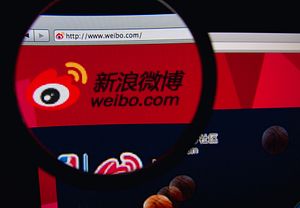On February 9, the New York Times published an article, titled “China Tells Schools to Suppress Western Ideas.” The article cites the theory of the China’s education minister that the pervasiveness of Western ideas in Chinese universities threatens the CCP’s leadership and destabilizes Chinese society. That thinking has come in for criticism from scholars who are concerned about China’s academic liberty and freedom of speech and publication. This follows the shutdown in January of 133 accounts on WeChat, a popular Chinese messaging service, that were believed to be “exposing CCP’s truth” and “distorting CCP’s history.” Last year, Google scholar, Gmail, and LINE were banned in China. Instagram was immediately blocked on the mainland after the “Occupy Central” protest took place in Hong Kong. Censorship in China has intensified since Xi Jinping took the office in 2012.
Five days before the Times’ article, Jeffrey Wasserstrom, a professor in the Department of History at the University of California Irvine, provided a different perspective at a Columbia University public lecture. He argued that the space to talk about politics in China was expanding. Wasserstrom compared China to pre-1991 Soviet Union, maintaining that one was unlikely to find George Orwell’s 1984 or Aldous Huxley’s Brave New World in a Soviet bookstore during that time. These two dystopian political writings describe people’s life under the control of totalitarianism and authoritative-hedonism. Wasserstrom suggests that contemporary China has more in common with the setting of Brave New World than that of 1984; rulers control people in a less arduous way, by appealing to people’s senses of pleasure and desire, albeit in an authoritarian culture.
Certainly, there is more political discussion among Chinese nationals. A peasant in Tianjin may attack a forced eviction by the local government with anger and tears. A migrant worker who drives a taxi in Shanghai might complain about the inequality of wealth and income distribution. However, one is not likely to read harsh criticisms of the CCP or the central government on Weibo.com, China’s version of Twitter, or WeChat. Together, registered accounts on these two services equal half the Chinese population. The CCP apparently believes that publishing allegories and analogies is tolerable; critical speech that poses a direct challenge to the regime will, however, be banned.
But we have entered a new millennium. If one doesn’t see harsh criticisms about the Chinese central government on Weibo or WeChat, one would assume they are being removed by the Internet “supervisors” (wang-luo-guan-li-yuan) under the leaders’ instructions (ling-dao-zhi-shi). They are not. They don’t appear because most Chinese people don’t post them. Chinese society has moved into an era of self-censorship where people themselves automatically “purify” the Internet environment. There are too many interests at stake to attack the CCP online. You could lose your job. You would be “invited” to “drink a cup of tea” (qing-he-cha, meaning you’ll be asked to have a talk with some officials in the government). You may be held in detention. You might go to prison. Your life could be at risk.
By the end of 2014, more than 500 million Chinese were online. Western academics are optimistic about this number, believing advances in digital communications will revolutionize China, even though Facebook, YouTube, and Google are all blocked. Their pivotal argument is that technology makes information flow and collective action easier, citing the Arab Spring as evidence. Transnational quantitative research suggests an association between exposure to the Internet and demands for democracy in the Middle East. Yet China is different.
Like Egyptians or Tunisians, Chinese people harbor anger. The difference between China and the Middle East is that general disaffection in China is more likely to be directed at local government, instead of Beijing. Unlike people in the Middle East, Chinese use the Internet in a way that helps to consolidate the CCP’s rule. Rather than criticizing the CCP or the central government, Chinese nationals choose to vent their anger at local government. Additionally, the majority has successfully been convinced that there is such a thing as a “foreign force” harming China’s national interests. Chinese people are accustomed to what I call “patriocracy,” leadership inherited from one’s predecessor or the past. As a consequence they are not highly motivated to overthrow the central government.
As long as the mechanisms of self-censorship and propaganda continue to work effectively to stabilize Chinese society, the education minister need not worry.
Yuxin Zhang is a Congressional aide. Previously, he was a research fellow at Asia Policy Point, a think tank in Washington, D.C. He is the executive director of the Heisei Sedai Association of Future Leaders of East Asia, a non-governmental organization that promotes friendship and dialogue between Chinese and Japanese youth. He is a member of the National Committee on US-China Relations as well as Young Professionals in Foreign Policy. Views here are his own.































